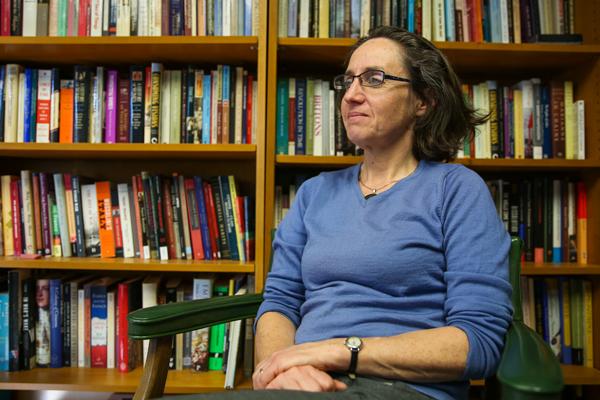Students majoring in history now have a more flexible curriculum, which faculty members said they hope will attract more majors to a shrinking department.
History majors no longer have to take foreign language classes or classes on European, North American and U.S. history and can choose to specialize in a topic or region. The changes allow students to tailor their academic plans to better reflect a globalizing world and its impact on the study of history, faculty said.
Katrin Schultheiss, the chair of the history department, said faculty made the changes to the requirements largely due to enrollment pressures. She said by becoming more flexible and more responsive to students’ interests, the department hopes to recruit students who might not have decided to major in history otherwise.
“I think the main gain for students is that they have a great deal more flexibility than they had before, and they can adapt it to whatever their plans are for the future,” Schultheiss said. “Whatever they want to do, there’s a way to make the history department work for them.”
The history department had 153 majors in 2011, but enrollment has dropped significantly since then: Only 72 undergraduate students majored in history in 2015 and 83 students majored in 2016, according to GW’s institutional research office.
Individual school funding is linked to the number of students taking classes in that school under the University’s new budget model – which can put pressure on departments to recruit students to bring in revenue for the school.
The new requirements for the history major mandate that students take at least one introductory course, a major’s introductory seminar, eight to 10 upper-level history courses and complete a thesis or capstone project, according to the department’s website.
Of the upper-level classes, one must be focused on a time period before 1750 and three must be in three different regions of the world, including Europe, North America, Africa, Asia, Latin America and the Middle East. Students are also required to take a theory or methods-based course that deals with subjects not tied to geography, like digital history. Before, students had to take two courses focused on Europe and the North America but now can choose from any of the regions.
Schultheiss said eliminating the foreign language requirement was one of the ways the department hoped to recruit on-the-fence students to the major. Some students had said the requirement was one of the reasons they didn’t pursue history majors, and knowing a language didn’t help them in their history courses, she said.
“Students are still encouraged to have a foreign language, especially students who want to go on to get a graduate degree in history,” she said. “But students who don’t have those plans, who just want to major in history and go into a number of fields – we didn’t feel that it was necessary to have that obstacle.”
Denver Brunsman, an associate professor of history and the director of undergraduate services for the department, said letting students take courses focused on other regions allows the program to approach history from a global perspective.
“I think an important change in the history major has been to make our major actually reflect the field of history the way that historians study it now,” Brunsman said. “In the past – and I think our old standards reflected this – it was very common to have students take a class in American history, in European history and maybe, just maybe, something else, another part of the world.”
The department also began allowing students to create digital capstone projects, rather than write thesis papers, Brunsman added.
“We have our first students who are going to be doing the alternative to the senior thesis, which is exciting,” he said. “Students are building websites. I haven’t heard of any documentaries yet, but we’re ready for it.”
Beyond changing the degree’s requirements, the department now allows students to concentrate on certain subjects within history – like military history, women’s history or geographic regions.
Thomas Long, an assistant history professor and the coordinator for undergraduate advising for the department, said students may now specialize in any subject related to history by taking six upper-level courses on related subjects that are approved by an adviser.
He said this option opens the door for history majors to effectively work in different fields after graduation because they will have more in-depth knowledge on a subject.
“If you are interested in international affairs, in foreign affairs, and you want to do an East Asian concentration at the Elliott School and you can specialize in East Asian history, you are going to be better qualified than the run-of-the-mill graduate when you get out of here,” Long said.
Long said he hopes more students declare majors in history because the curriculum prepares them for a variety of fields.
“You should graduate with a history major able to do three things: You should know how we got where we are, you should be able to write and you should be able to think critically,” Long said. “If you graduate with those skills, you can really do anything.”
Sera Royal contributed reporting.








